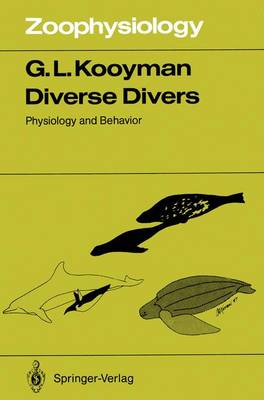Zoophysiology
1 primary work
Book 23
This book is not a conventional review of diving physiology. The coverage of the literature has been selective rather than en compassing, the emphasis has been on field studies rather than laboratory investigations, and the dive responses described are often discussed from the perspective of some of the flaws or weaknesses in the conclusions. Some of these points are of more historical interest to note how our concepts have evolved as we learn more about behavior and responses to natural diving in contrast to forced submersions in the laboratory. As a result there is a degree of evaluation of some experiments on my part that may seem obvious or controversial to the specialist. I have followed this planat times in order to aid the reader, who I hope is often an untergraduate or graduate stu dent, the nonspecialist, and the layman, in appreciating to some degree the level of dissatisfaction or skepticism about certain areas of research in diving physiology. In view of historical boundaries in vertebrate biology, the subject is of broad enough importance to catch the interest of a wide audience of readers if I have done my job well. For ex ample, of the major epochal transitions or events there have been in vertebrate history, three come immediately to mind: (1) The transition from aquatic to aerial respiration which ultimately led to a broad occupation of terrestrial habitats. (2) The development of endothermy.
